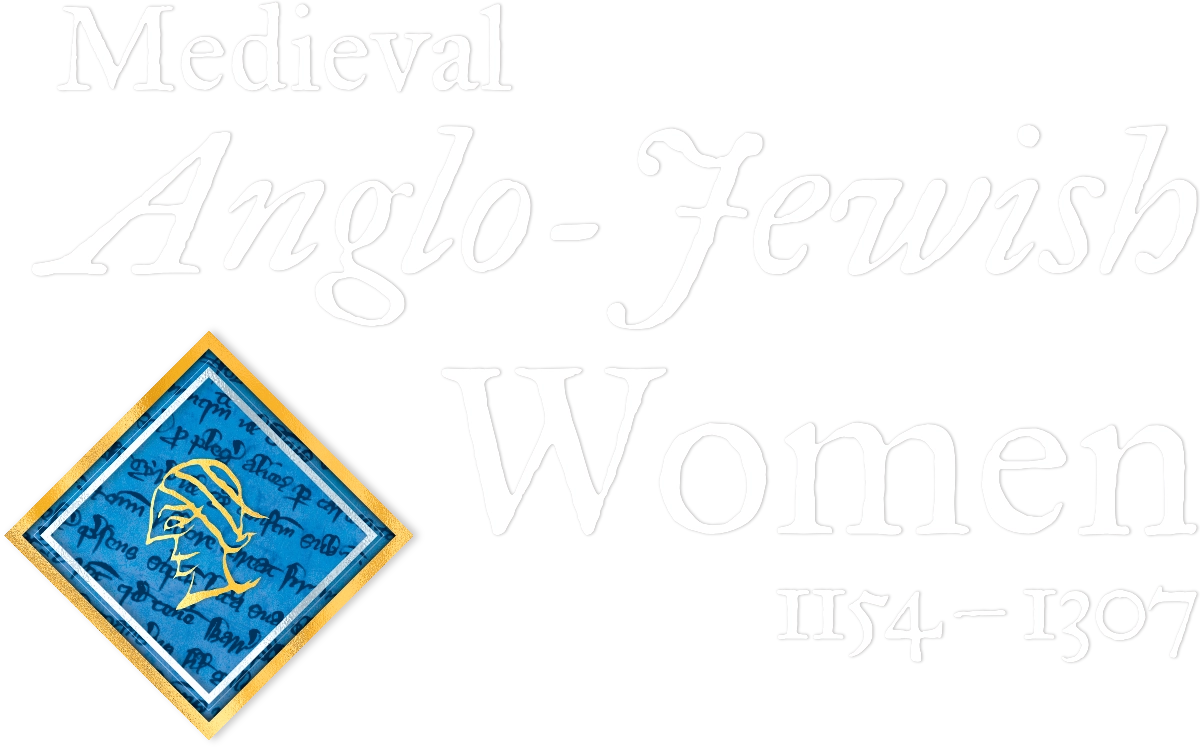Comitissa Turbe of Gloucester
Referred to in records as: “Comitissa”.
Brief biography

Comitissa Turbe, a Jewish woman from Gloucester, spent much of the year 1220 before
the
Justices of the Exchequer of Jews accusing Abraham Gabbay of murdering her husband
Solomon. According to Comitissa, Abraham hired a man called
Andrew, a beer-server called Gilbert, and three other castle guards, to push Solomon
out
of the tower at Gloucester Castle, where he had been imprisoned after a physical
altercation with Abraham. Comitissa, who was also briefly imprisoned, claimed that
she
overheard Abraham plotting with Andrew and Gilbert and, as soon as she was out of
prison, hurried to London to inform Christian and Jewish authorities (among them Isaac
of Norwich, leader of the Norwich Jewish community until his death ca. 1236). According
to other witnesses, however, Solomon died by suicide. He lived for some time after
his
fall, when he claimed that he wanted to be like King Saul (who fell on his own sword
in
1 Samuel 31:1–5). At the same time, he also accused Abraham Gabbay and even seemed
to
accuse Comitissa: witnesses heard him say repeatedly to her,
Flee hence, for it is by your plot I am slain.
The legal proceedings brought forward by Comitissa included
witnesses and jurors from prominent Jewish families in Warwickshire and Gloucestershire,
including Mirabel of Gloucester and her son-in-law Isaac (who was, at first, also accused). When Solomon was
still alive, Mirabel paid a fine to have the Justices inquire directly with
him about whomever he might accuse. Ultimately, the court ruled that Solomon had thrown
himself from the castle tower, and that they did not have enough evidence to convict
any
other Jew. Nothing further is known of Comitissa’s
life in the years after her husband’s death, but her involvement in this thirteenth-century
murder investigation reveals a
woman’s independent and persistent use of the courts, complex interactions between
Christians and Jews, and the interrelationships of several Jewish communities.
Further reading
- Emma Cavell, The Measure of Her Actions: A Quantitative Assessment of Anglo-Jewish Women’s Litigation at the Exchequer of the Jews, 1219–81, Law and History Review 39.1 (2021): 135–72.
- Hillaby Joe, Testimony from the Margin: The Gloucester Jewry and Its Neighbours, c.1159–1290, Jewish Historical Studies 37 (2001): 41–112, at 65–66.
Dates mentioned in records
1220
Locations
Gloucestershire

